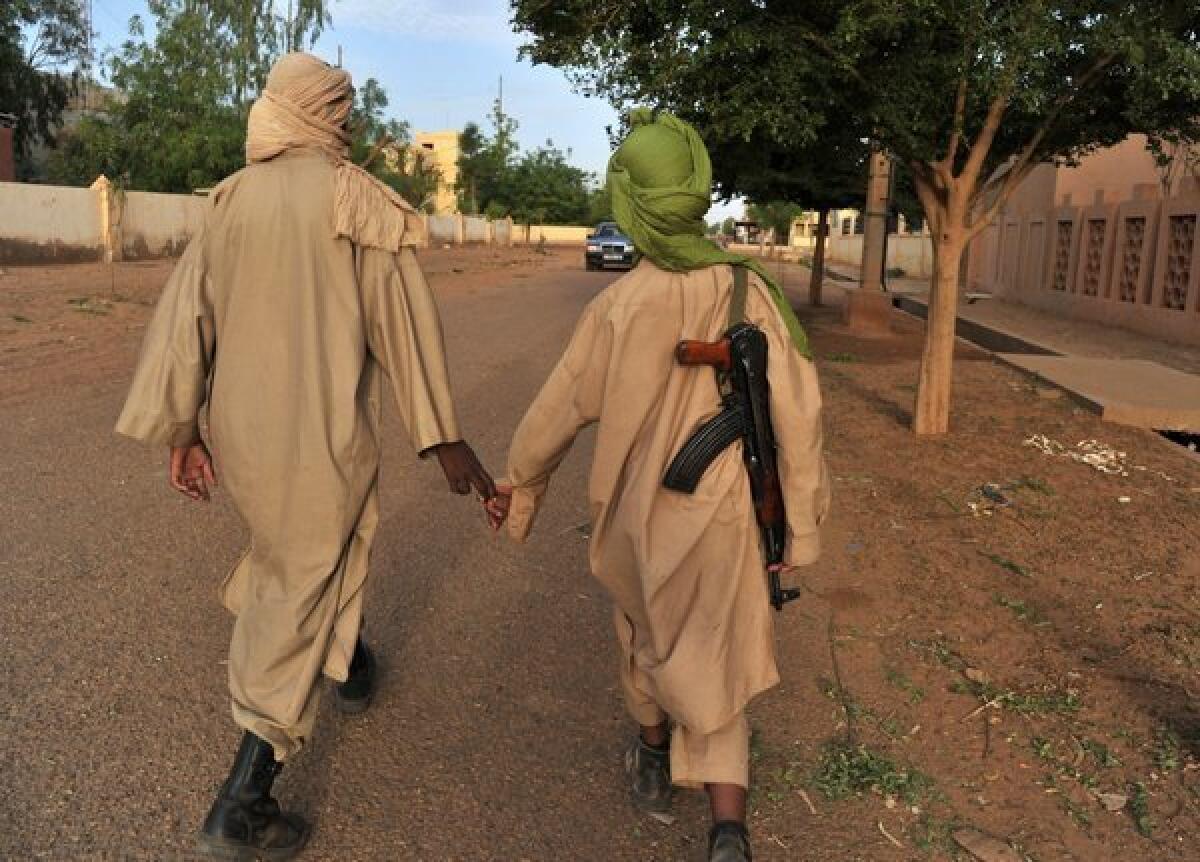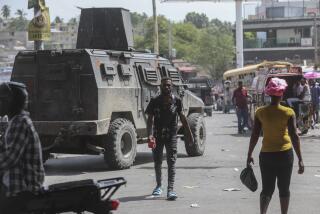U.N. Security Council approves military mission in Mali

Aiming to reclaim the northern stretches of Mali from extremists, the United Nations Security Council on Thursday approved the deployment of African-led forces to the West African nation for a year.
However, the resolution stresses that Mali has a second battle to fight: stopping the military from meddling in government affairs and reestablishing order through peaceful elections. Before forces can be sent to oust the Islamist militants, the Security Council said, steps must be taken to put the tumultuous country back on track, continue peace talks and ensure that military forces are adequately trained and equipped for the daunting task.
U.N. peacekeeping chief Herve Ladsous has said military operations are unlikely to begin until the fall, the Associated Press reported. A West African bloc of nations has already authorized 3,300 troops for the anticipated mission.
Mali has been beset by turmoil this year. In the chaos following a spring military coup, Tuareg rebels and Islamist groups took over the north. Extremists imposed harsh Islamic law onto the areas they claimed, stoning alleged adulterers and smashing historic tombs.
Meanwhile, in the south, coup leaders said they had given up control of the government, but were widely suspected of continuing to wield power behind the scenes. Last week, soldiers arrested the prime minister and forced him to resign.
Ties between the Islamists and Al Qaeda in Mali have France and other nations on edge, and analysts caution that simply sending in forces will not be enough to stabilize the country. The U.S. has also questioned the soundness of plans for military operations in the harsh desert.
The Security Council resolution reflects those concerns, citing the need for “national dialogue” and requiring the African Union and other groups to report back every 60 days on political progress, military readiness and other markers. Plans must still be refined before troops can deploy, it said.
ALSO:
Syria conflict turns ‘overtly sectarian,’ U.N. reports
Controversial Indian politician gets boost from election win
4 State Department officials quit after report on Benghazi attack
More to Read
Sign up for Essential California
The most important California stories and recommendations in your inbox every morning.
You may occasionally receive promotional content from the Los Angeles Times.








